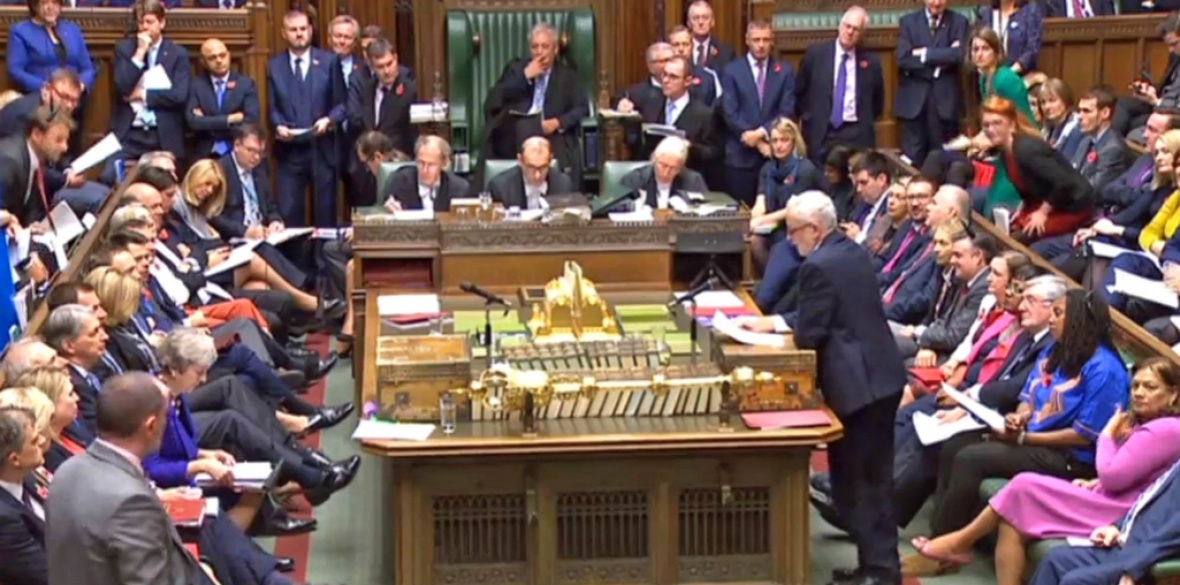“CORBYNSCEPTIC” MPs, as their media friends dub them, came to the Tories’ rescue again this week, rebelling against Labour’s decision not to oppose the Budget on taxation.
Twenty backbenchers switched from their normal stance to the right to strike a leftist pose as defenders of the low-paid against an “immoral” decision taken by Corbyn and shadow chancellor John McDonnell.
Wigan MP Lisa Nandy led the charge, declaring: “We have to roar loudly on behalf of 4.1 million children in poverty in this country and vote against the Tory tax cuts that, according to the Resolution Foundation, overwhelmingly benefit the rich.”
The Resolution Foundation is right and both Corbyn and McDonnell made this point in discussion.
Corbyn noted that lowering thresholds was good for the lowest-paid “but very poor in the sense of redistribution of wealth, because they actually give a bigger tax gift to the very wealthiest in our society.”
The Labour leader also stipulated that both the top 5 per cent of earners and “the biggest corporations” should pay more taxes.
Awareness of this injustice led the Labour front bench to table an amendment, raising the prospect of increasing income tax for the top 5 per cent — 50 per cent on annual income above £125,000, while protecting the 95 per cent.
After its defeat by 313 votes to 246, the Tories would have been overjoyed to see Labour oppose all threshold increases.
How much anti-Labour antagonism would they and the media have been able to whip up by noting that Labour had voted against allowing low and middle earners to keep more of their meagre earnings.
McDonnell explained Labour’s position as meaning it is “not going to take money out of people's pockets.”
And shadow economic secretary to the Treasury Jonathan Reynolds quoted Labour’s 2017 general election manifesto pledge that no-one earning below £80,000 would pay more tax under Labour. To have voted as the 20 “rebels” wanted, would have breached that commitment.
“That is why we won’t and can’t do that,” said Reynolds.
As it was, the principled position adopted overwhelmingly by Labour MPs was swamped as Nandy toured the radio and TV newsrooms to explain why 20 unconvincing class warriors saw Corbyn’s Labour as “immoral.”
Corbyn, McDonnell and Diane Abbott have a track record over decades of rebelling against the Labour whip when they saw that the party leadership — in pursuit of its pro-business credentials — was failing to defend the working class, including benefits claimants, from Tory attacks.
Three-and-a-half years ago, when Harriet Harman was interim leader following Ed Miliband’s resignation, she ordered Labour MPs to abstain on Tory plans to cut benefits and lower the benefit cap.
Fifteen of the 18 “tax threshold” rebels who were in Parliament then, including Nandy, toed the line, while 45 other MPs joined Corbyn, McDonnell and Abbott in rejecting this vicious attack on the poor.
This firm defence of the poorest in society was part of why Labour members voted conclusively just weeks later to make Corbyn their leader.
Losing candidates Liz Kendall, Andy Burnham and Yvette Cooper, whose 2015 leadership election contribution to empowering poor workers was to advocate cutting corporation tax, have all weaponised this issue to undermine Corbyn.
However, it is notable that the parliamentary core of hard-line anti-Corbyn dissidents is now below a score, with most MPs realising that maximum party unity is essential.
Were that total to be diminished still further in candidate-selection procedures before the next election, few tears would be shed.











